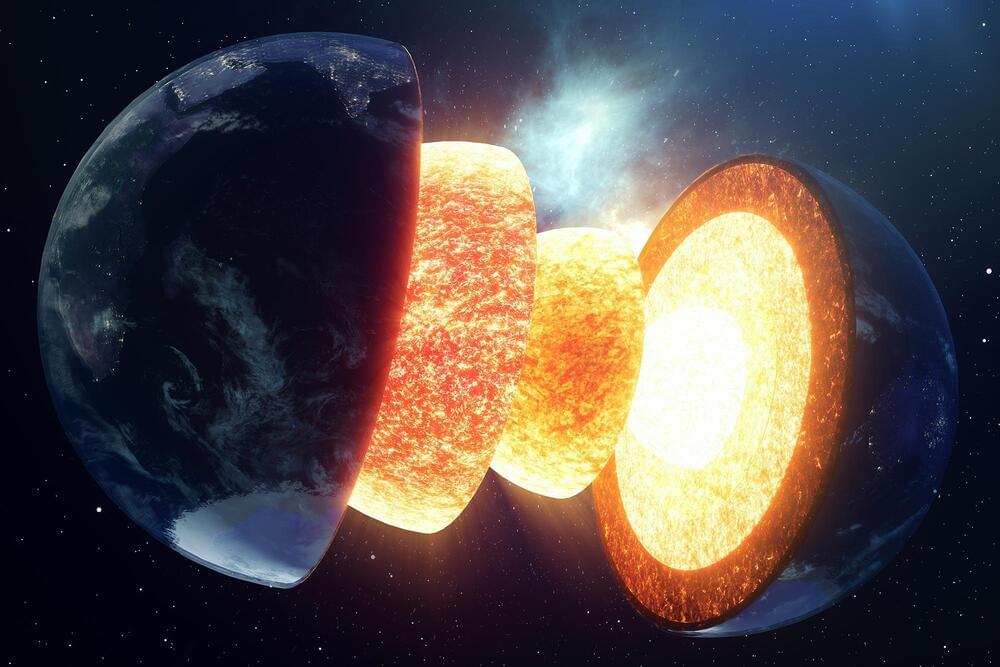New research suggests the mysterious D layer at Earth’s core-mantle boundary might have formed from remnants of an early colossal impact, with iron-rich peroxide playing a key role in its unique and enduring features.
Deep within Earth, there lies a mysterious layer called the D layer. Located roughly 3,000 kilometers down, this zone sits just above the boundary between the planet’s molten outer core and its solid mantle. Unlike a perfect sphere, the D layer is surprisingly patchy. Its thickness varies greatly from place to place, with some regions even lacking a D layer altogether – much like continents rise above the Earth’s oceans. These intriguing variations have captured the attention of geophysicists, who describe the D layer as a heterogeneous, or non-uniform, region.
A new study led by Dr. Qingyang Hu (Center for High Pressure Science and Technology Advanced Research) and Dr. Jie Deng (Princeton University) suggests the D layer might be originated from Earth’s earliest days. Their theory hinges on the Giant Impact hypothesis, which proposes a Mars-sized object slammed into the proto-Earth, creating a planet-wide magma ocean in the aftermath. They believe the D layer may be a unique composition leftover from this colossal impact, potentially holding clues to Earth’s formation.










Leave a reply